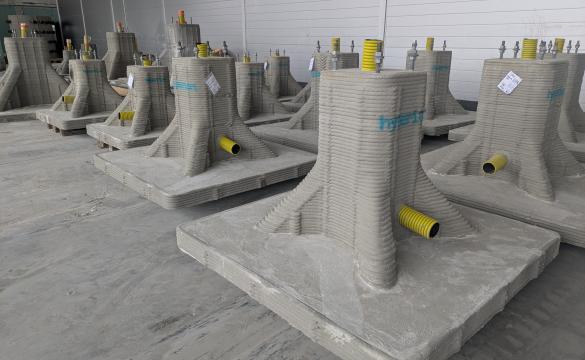National Grid has partnered with Hyperion Robotics and the University of Sheffield to test 3D-printed concrete foundations for electrical substations. The UK-first trial aims to reduce carbon emissions and lower costs associated with network construction. Testing will occur at the University of Sheffield’s facilities and later at National Grid’s Deeside Centre for Innovation in North Wales in 2025.

The project could deliver significant environmental and cost benefits if implemented across National Grid’s infrastructure. According to the company, the technology could save up to 705 tons of concrete and 323 tons of CO2 over a ten-year period. Consumer savings are estimated at £1.7 million compared to traditional construction methods.
The 3D-printed foundations offer multiple efficiency improvements over conventional designs. These include a 70% reduction in concrete usage, 80% less soil displacement, and a 65% decrease in carbon emissions. The new foundations are also 70% lighter than typical foundations and require 50% fewer site operative hours.
Hyperion Robotics will design and produce the foundations in Finland before testing begins. The project is funded through Ofgem’s Network Innovation Allowance, which supports initiatives with potential long-term financial and environmental benefits for consumers.
Dr. Muhammad Shaban, Lead Innovation Engineer at National Grid Electricity Transmission, called the trial “a real step forward in achieving more innovative construction practices which align with our bold and ambitious commitments on sustainability.” Fernando De los Rios, Hyperion’s CEO and founder, stated that the partnership “accelerates our efforts to decarbonise the construction sector through cutting-edge engineering and low carbon 3D-printed concrete structures.”
The University of Sheffield will conduct full-scale testing to assess the load-bearing capacity of the 3D-printed foundations. Dr. Behzad Nematollahi from the university confirmed they will use “state-of-the-art engineering testing facilities at the Intelligent Infrastructure Laboratory located at ICAIR” for the evaluation process.

